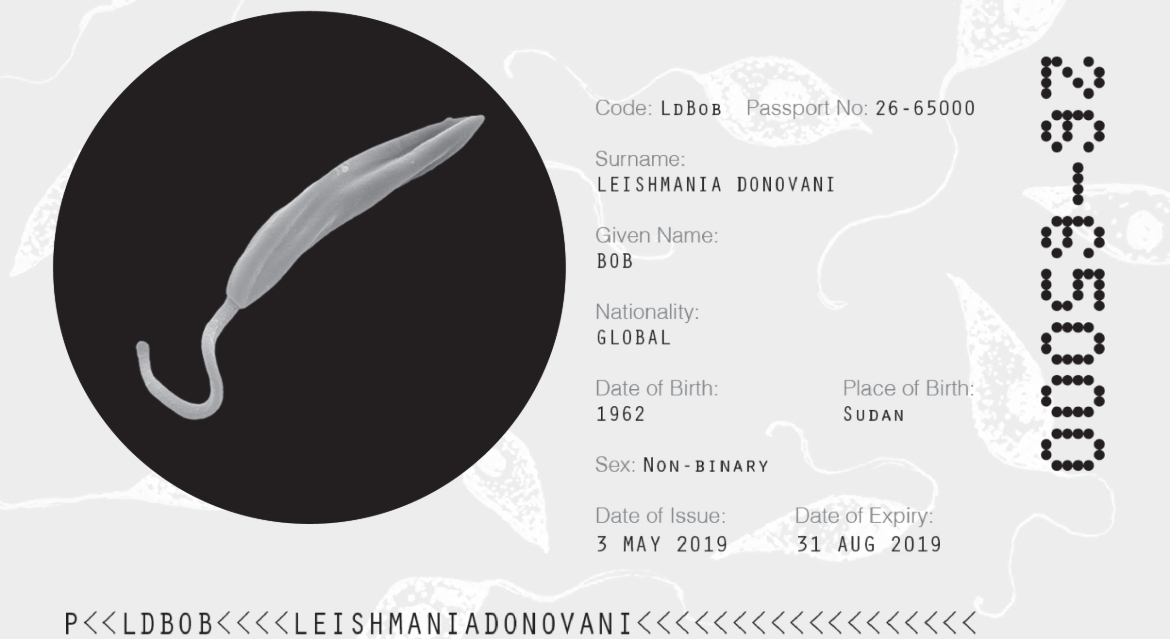Take a trip from a parasite’s perspective
Published On Thu 25 Apr 2019 by Dominic Glasgow

The deadly parasite Leishmania has been travelling the world for millions of years, catching flights between humans, dogs and other animals throughout history and causing an untold number of deaths.
Now, scientists at the University of Dundee are inviting the public to step inside the Para-site-seeing: Departure Lounge to see how humans are fighting back.
The new science-art exhibition, funded by the Wellcome Centre for Anti-Infectives Research (WCAIR), will land in Dundee on Thursday 2 May.
Taking place at the University’s LifeSpace Gallery it will give visitors the chance to see for themselves the traits of one of the world’s most dangerous disease carriers.
Para-site-seeing: Departure Lounge offers the public the opportunity to view life from the perspective of the parasite and to get up close and personal with life down the microscope.
Sir Mike Ferguson, Regius Professor of the School of Life Sciences who has dedicated his career to fighting infectious diseases, said, “This is a very exciting show. We are passionate believers in the value of different disciplines working together. When artists and scientists collaborate, it allows each to look at their work in a new and creative way. Having been a part of the exhibition development, I am delighted to see this work open to the public.”
Visceral leishmaniasis, one of the diseases caused by the parasite, is spread through the bite of infected sandflies. This major neglected disease kills tens of thousands of people every year, mainly among the poorest in the world.
Para-site-seeing: Departure Lounge will feature the work of Jen Southern and Rod Dillon, who first began sharing the story of Leishmania through their travel blog Para-Site-Seeing.
Jen Southern, an artist and Director of the Mobilities Lab at the Centre for Mobilities Research at Lancaster University said the exhibition could help connect researchers around the world in the fight against the parasite.
She said “We’ve aimed to connect research in Dundee and Lancaster through the history of how the parasites have spread around the world. We’re also interested in the different ways that parasites move, on both the microscopic level and a global scale. Trying to see from the parasite's perspective has helped us to focus on these movements in a new way.”
The Wellcome Centre for Anti-Infectives Research (WCAIR) aims to tackle the lack of drug discovery for neglected tropical diseases, most often found in the developing world and the University’s Drug Discovery Unit (DDU) recently discovered a new preclinical candidate drug for visceral leishmaniasis and Chagas disease.
Para-site-seeing: Departure Lounge will open to the public on Thursday 2 May at LifeSpace Gallery based within the School of Life Sciences.
The exhibition will be accessible between 11am – 5pm on Saturdays or by appointment at other times.
For media enquiries contact:
Dominic Glasgow
Media Relations Officer
University of Dundee
Nethergate, Dundee, DD1 4HN
Tel: +44 (0)1382 385131
Email: d.w.glasgow@dundee.ac.uk